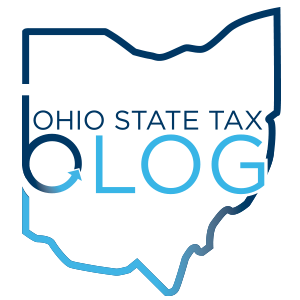Ohio Tax Legislative Update – Taxpayers’ direct right of appeal reinstated, bright-line residency amended, and oil & gas exemption clarified
 Direct Right of Appeal to Ohio Supreme Court reinstated
Direct Right of Appeal to Ohio Supreme Court reinstated
Governor Kasich signed Sub. H.B. 292 on June 14, 2018 reinstating the right of Ohio taxpayers to appeal many decisions of the Ohio Board of Tax Appeals (“BTA”) directly to the Ohio Supreme Court. This is a victory for Ohio taxpayers as it will reduce tax appeal costs and provide uniform tax rulings applicable throughout the state.
This right was temporarily removed in last year’s Budget Bill, but thankfully will be short-lived. Effective September 13, 2018, BTA decisions concerning appeals from Ohio Tax Commissioner final determinations and municipal income tax determinations can once again be taken directly to the Ohio Supreme Court. Unfortunately, BTA appeals concerning property valuations for real estate taxes must continue to be appealed to the appropriate Court of Appeals.
Bright-Line Residency for Ohio income tax
Sub. H.B. 292 also modified Ohio’s bright-line residency test for tax years beginning with 2018. The amendment specifies that the common law factors for determining domicile are irrelevant for the bright-line test, effectively overruling the Ohio Supreme Court’s 2015 Cunningham decision. Under the amended bright-line residency test in R.C. 5757.24, an individual will be a nonresident for Ohio income tax purposes if he/she:
- Has less than 213 Ohio “contact periods” (i.e., overnight stays);
- Has an out-of-state home for which a depreciation deduction was not claimed on the individual’s federal income tax return;
- Did not hold an Ohio driver’s license or ID;
- Did not claim the homestead exemption on his/her Ohio residence; and
- Did not receive in-state tuition from an Ohio state university.
The individual must still file the Affidavit of Non-Ohio Residency (Form IT DA) with the Tax Commissioner to receive the irrebutable presumption of nonresidency. The deadline to file this Affidavit was extended to October 15th, consistent with the extended deadline for filing an individual’s income tax return. Many clients ask if this Affidavit needs to be filed every year – the answer is yes, for as long as the individual owns or maintains a residence in Ohio.
Oil & Gas Exemption from Ohio sales / use tax
HB430 amends Ohio’s sales / use tax exemption for property used in the production of or exploration for crude oil and natural gas. Technological advancements, specifically fracking operations, created a need to clarify specific property and activities which are exempt, but may not have been contemplated when the exemption was enacted decades ago. This clarification should be welcomed as much of Ohio’s authority on this exemption was from the 1970s and 1980s, creating uncertainty for oil & gas producers as to how the exemption would be applied to current operations.
The new legislation specifies a host of exempt activities and equipment relating to oil and gas production, including:
- Construction of permanent access roads, well sites, and temporary impoundments;
- Equipment used to create a wellbore pathway to underground reservoirs;
- Drilling and services used within a subsurface well;
- Casing, tubes, and float and centralizing equipment;
- Well completion services and equipment used in providing such services;
- Wireline evaluation, mud logging, and perforation, and equipment used in providing such services;
- Pressure pumping and artificial lift equipment; and
- Wellhead and well site equipment used to separate, stabilize, and control hydrocarbon phases and control water.
The amendment also lists several types of oil & gas property which are not exempt. The lists of exempt and nonexempt equipment will be in R.C. 5739.02(B)(42)(q).
If you have any questions about how these Ohio tax developments may affect you or your business, do not hesitate to contact a member of our team. Steve Dimengo and Rich Fry are both partners with Buckingham’s Taxation Practice Group and focus on State and Local Tax.
